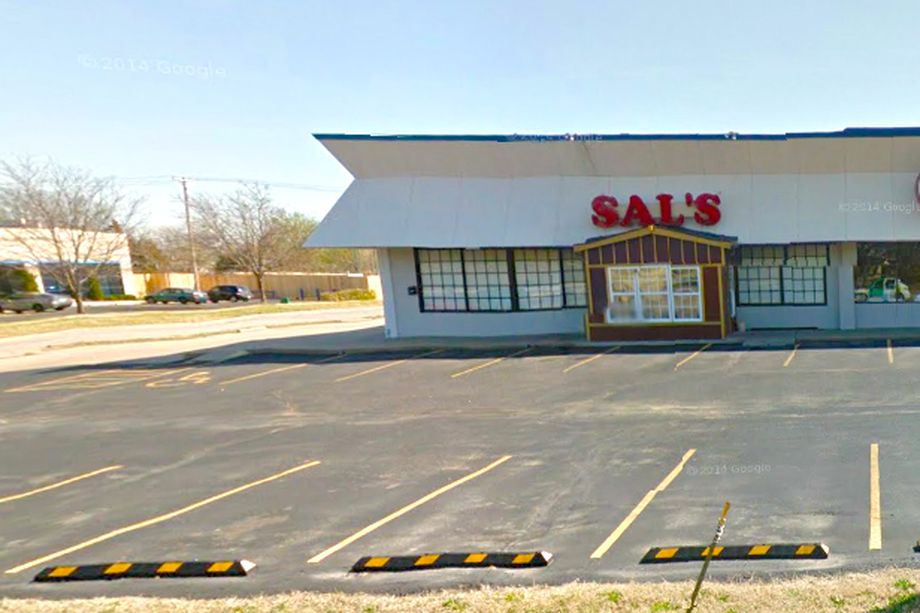Hollywood Shut Down: Actors And Writers On Strike — What This Means For Film And TV

Table of Contents
The Core Issues Fueling the Hollywood Strike
The Hollywood strike is fueled by a multitude of long-standing grievances, primarily concerning fair wages, streaming residuals, the increasing use of AI, working conditions, and job security. Both the WGA and SAG-AFTRA have highlighted significant discrepancies between compensation models in traditional media and the newer streaming landscape. These core issues have pushed actors and writers to take this drastic action.
-
Low residuals from streaming platforms: The shift to streaming has drastically reduced residuals for writers and actors, who previously received payments each time their work was aired. Streaming services often pay lump sums, regardless of viewership, leaving many struggling to maintain a living wage. This impacts both established and emerging talent, creating instability within the industry.
-
Concerns about the use of AI in writing and acting: The rapid advancement of artificial intelligence poses a significant threat to writers and actors. The fear is that AI could be used to replace human creativity, leading to job displacement and a devaluation of their skills. Both unions are demanding safeguards to protect their members from this technological disruption.
-
Lack of fair wages and benefits for actors and writers: Many actors and writers struggle to earn a sustainable living, especially those working on lower-budget projects or in the increasingly competitive streaming market. The unions are fighting for better wages, health benefits, and pension plans to ensure a fair standard of living for their members.
-
Unreasonable working conditions and long hours: The industry is notorious for its demanding schedules and long hours, often without adequate compensation or breaks. The unions are pushing for improvements in working conditions, including reasonable limits on working hours and better protection against exploitation.
-
The erosion of job security in the evolving media landscape: The changing media landscape, with its emphasis on streaming and shorter-term contracts, has created significant job insecurity for writers and actors. They are seeking greater job security and more predictable employment opportunities.
Impact on Film and Television Production
The Hollywood strike has already had a substantial impact on film and television production, causing widespread delays and cancellations. The ripple effect extends beyond the immediate participants, affecting numerous related industries and the global economy.
-
Delays in movie and TV show production: Numerous film and television productions have been indefinitely halted, leading to significant delays in release schedules. This disruption affects everything from big-budget blockbusters to smaller independent projects.
-
Potential cancellations of projects: Some projects may be cancelled entirely due to the extended production delays and escalating costs associated with the strike. This particularly affects projects with limited budgets or those relying on specific release windows.
-
Postponement of film and TV releases: Movie and TV show releases are being postponed, creating uncertainty in the entertainment calendar and impacting marketing strategies. This affects movie theaters, streaming platforms, and the overall entertainment landscape.
-
Economic consequences for production crews, support staff, and local businesses: The strike is causing significant economic hardship for many individuals and businesses reliant on the film and television industry, including caterers, transportation services, and local hotels.
-
Uncertainty surrounding future production schedules: The duration of the strike remains uncertain, creating significant uncertainty for producers, studios, and everyone involved in film and television production. This instability makes long-term planning difficult and raises concerns about future projects.
The Future of Film and Television in the Post-Strike Era
The outcome of the Hollywood strike will significantly shape the future of film and television. The negotiations could lead to substantial changes in industry practices, streaming models, and contract structures.
-
Possible changes to streaming revenue-sharing models: The strike could lead to revised revenue-sharing models that better compensate writers and actors for their work on streaming platforms. This could involve increased residuals or more transparent accounting practices.
-
Increased protections for writers and actors against AI: The unions are seeking safeguards to prevent the displacement of human workers by AI. This could involve regulations on the use of AI in writing and acting or provisions for fair compensation when AI is utilized.
-
Improved working conditions and fair wages: The strike is pushing for improved working conditions and fair wages, potentially leading to better benefits, more reasonable working hours, and a reduction in exploitation.
-
Potential reforms in contract negotiations and industry practices: The strike could lead to reforms in contract negotiations and industry practices, leading to greater transparency, fairness, and a more equitable distribution of profits.
-
The long-term impact on creative content and storytelling: The outcome of the strike could have a lasting impact on the types of stories told and the creative process itself. It could lead to a greater emphasis on human creativity and a more sustainable environment for artists.
The Role of Streaming Services in the Dispute
The rise of streaming giants like Netflix, Disney+, Amazon Prime, and Hulu has significantly contributed to the issues that led to the strike. The shift towards streaming has disrupted traditional revenue models, leading to decreased residuals for writers and actors. The lack of transparency in streaming revenue and the power held by these platforms have exacerbated the existing inequalities within the industry. The negotiations will likely focus on rebalancing the power dynamics between streaming services and the creative talent they rely on.
Conclusion
The Hollywood strike, involving both the WGA and SAG-AFTRA, represents a critical turning point for the film and television industry. The core issues driving the strike – fair wages, streaming residuals, AI concerns, working conditions, and job security – highlight the deep-seated inequalities within the industry. The strike's impact on production, release schedules, and the broader economy is substantial. The post-strike era will likely see significant changes in industry practices, streaming models, and contract negotiations. Understanding the complexities of this Hollywood shutdown is crucial for anyone interested in the future of film and TV. Stay informed about the ongoing Hollywood strike and its implications for the future of film and television by following updates on SAG-AFTRA and WGA websites for the latest information on the Hollywood strike and its resolution.

Featured Posts
-
 2025 Kawasaki Ninja 650 Krt Release Date Features And Price
May 30, 2025
2025 Kawasaki Ninja 650 Krt Release Date Features And Price
May 30, 2025 -
 Ticketmaster En La Mira Trump Y Su Lucha Contra La Reventa De Entradas
May 30, 2025
Ticketmaster En La Mira Trump Y Su Lucha Contra La Reventa De Entradas
May 30, 2025 -
 Mengapa Kawasaki Z900 Dan Z900 Se Lebih Terjangkau Di Indonesia
May 30, 2025
Mengapa Kawasaki Z900 Dan Z900 Se Lebih Terjangkau Di Indonesia
May 30, 2025 -
 Deutsche Bank Executives Meet With Finance Minister To Discuss Economic Outlook
May 30, 2025
Deutsche Bank Executives Meet With Finance Minister To Discuss Economic Outlook
May 30, 2025 -
 Measles Outbreak In Kansas A Growing Concern
May 30, 2025
Measles Outbreak In Kansas A Growing Concern
May 30, 2025
